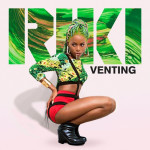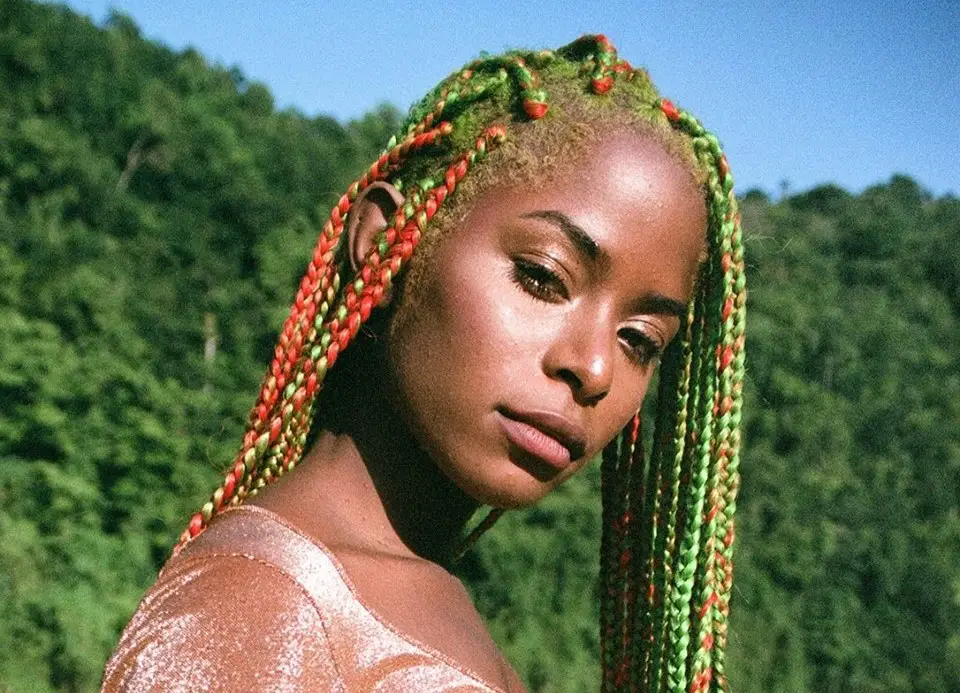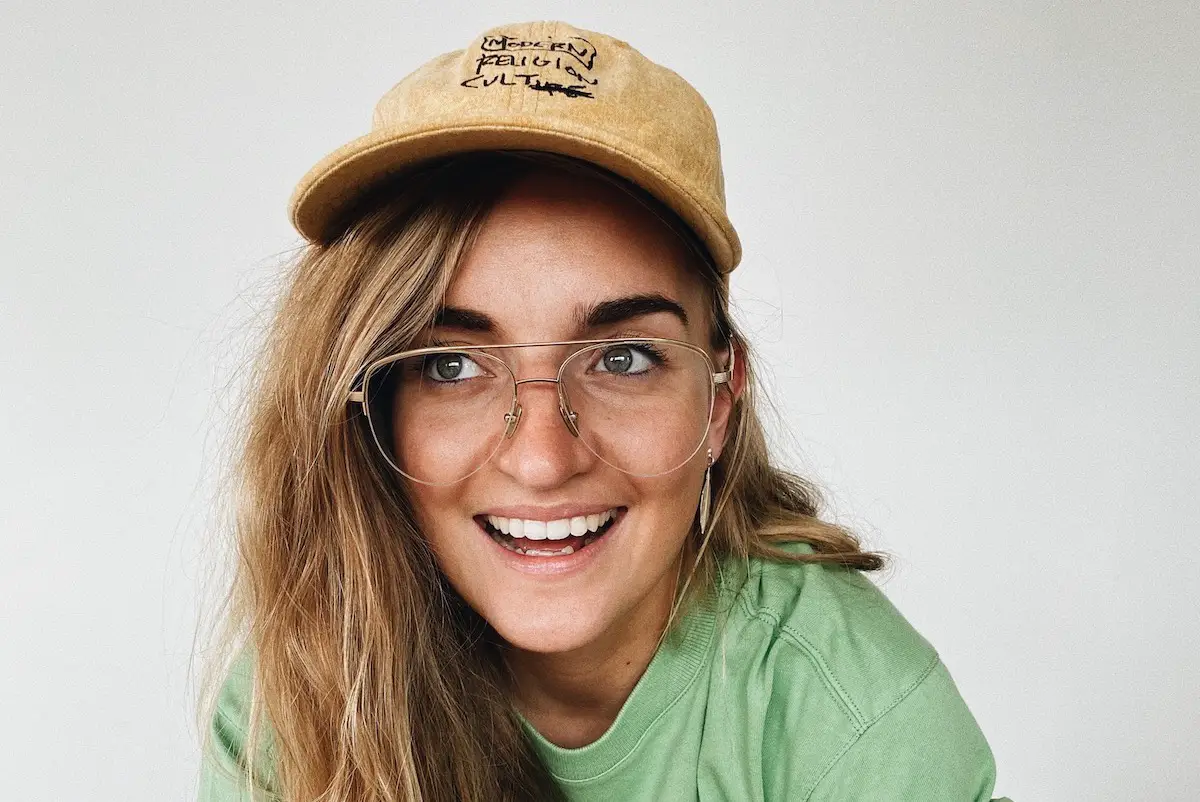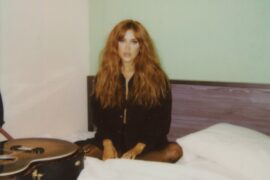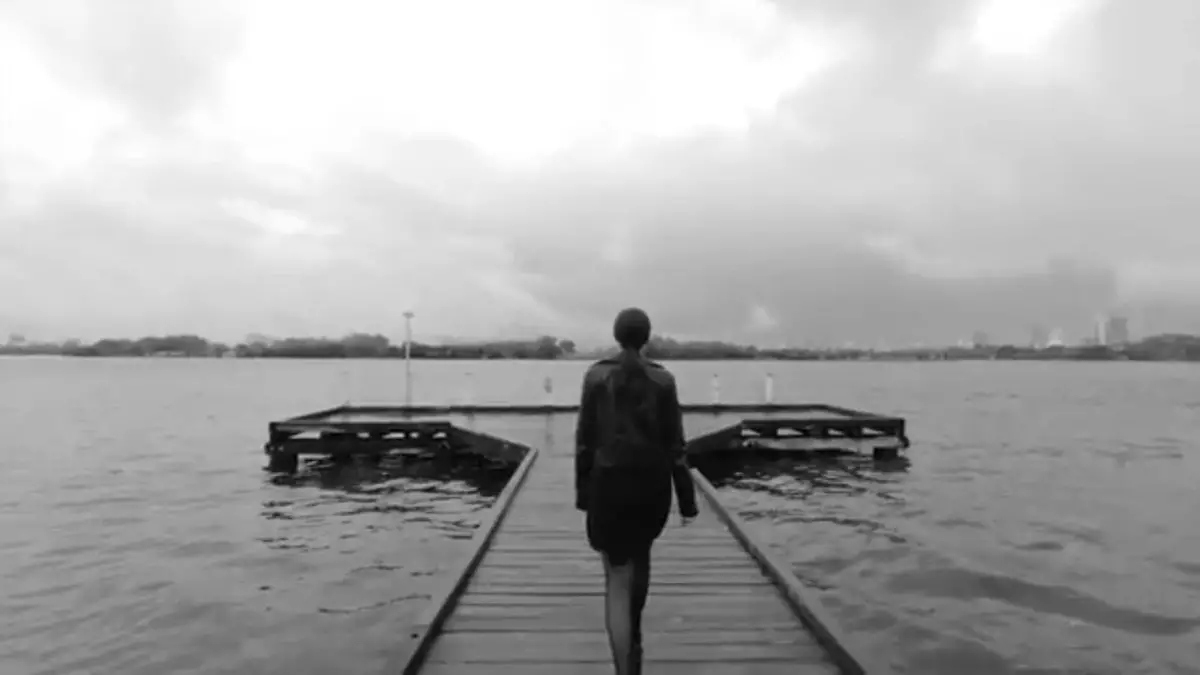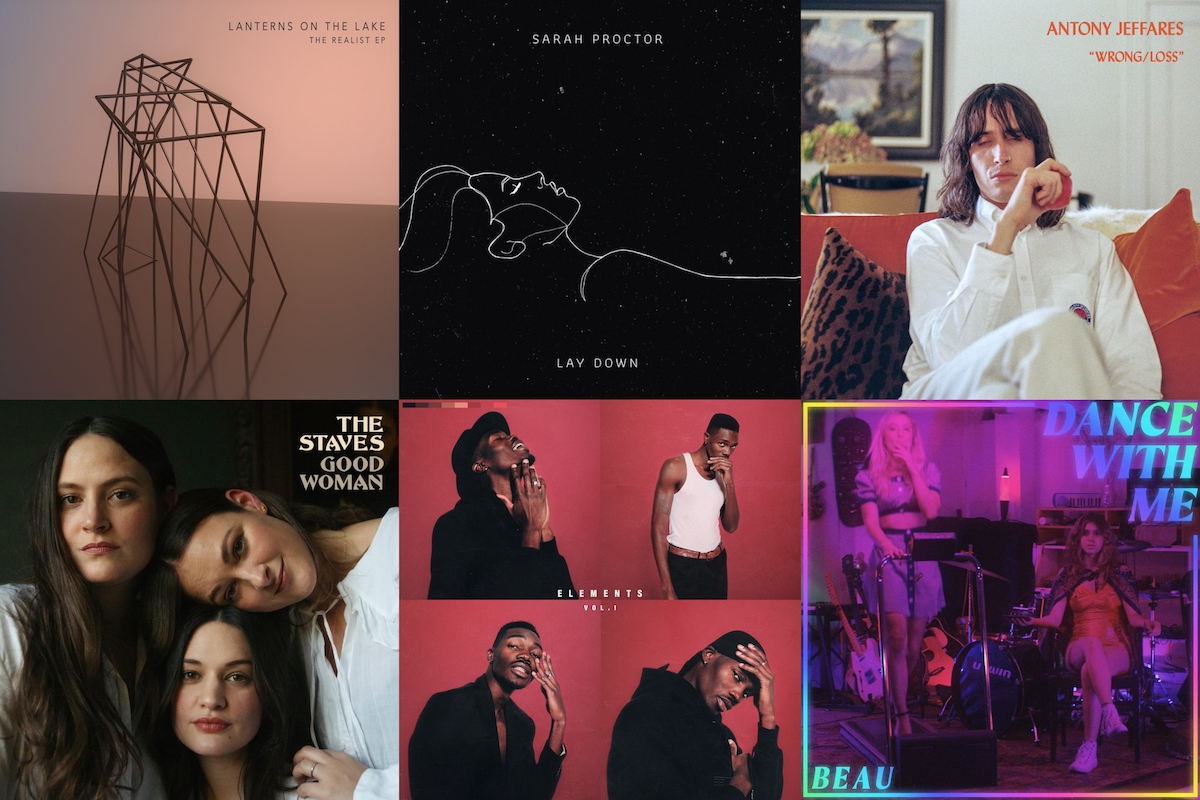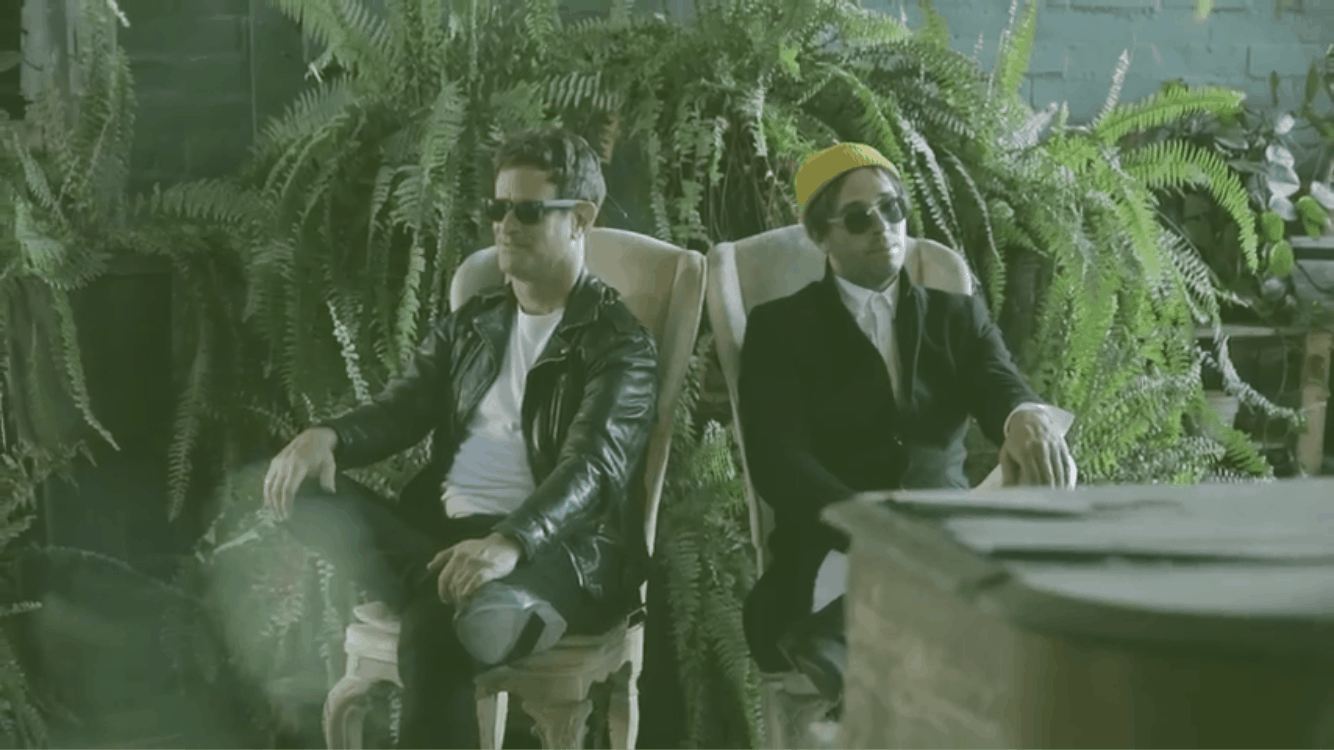Cleveland-raised and Jamaica-born, RIKI has created a genre of her own, blending an individualistic attitude with trap, neo-soul and alternative R&B; here, she talks about being a multidisciplinary creative, millennial empowerment and her forthcoming debut record Salience.
— —
With the year soon ending, plenty of promising artists have graced our ears and playlists with praiseworthy gems. R&B musicians like JMSN and RAY BLK have particularly shaken up their own genres with projects that skillfully transport their listeners to the happenings and places of various past decades while characters like SZA, Daniel Caesar and Brent Faiyaz have taken the route of revamping soul into something increasingly creative, attention-grabbing and, above all, modern. But even though 2017’s posed itself as a treasure trove of groundbreaking talent, there’s still a bit of art that’s left to be discovered. And in that empty space of desire, artists like RIKI, the pseudonym of Jamaican R&B newcomer Rickolette Simmonds, seamlessly fill any gaps – indeed, the synthesis of sounds belonging to RIKI’s debut single “Venting” fulfills the wants that soul and hip-hop heads didn’t even know they possessed.
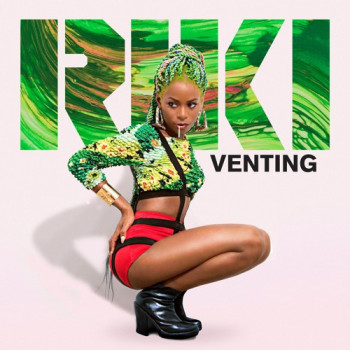
The track’s introduction flows simply and candidly enough as the self-proclaimed “soul rebel” announces her prerogative in a playful, sultry tone: “I ain’t got no time for this shit, I ain’t got no time for these bitches.” Sure, these are words that often falling from the mouths of those dabbling in the likes of rap and R&B, but as RIKI continues singing – eventually freestyling – over dotting synthesizers and a pulsating bass, it’s hard to sit still. The 23-year-old Caribbean woman has an engaging flow that’s not only expressed via her words in “Venting,” but in its vibrant, supplementary music video. Filmed in Portland, Jamaica, RIKI considers the sun- and neon light-drenched clip to be abstract and without a storyline. Yet, the the soul-trap song itself is loaded with candor and homes in on RIKI’s individuality and drive – it’s all about her.
In this exclusive interview with Atwood Magazine, the singer-songwriter talks about her identity as a multidisciplinary creative, making empowering music for millennials, her upcoming album Salience, and why Juvenile’s “Back Dat Azz” up is an absolute classic.
Watch: “Venting” – RIKI
AN INTERVIEW WITH RIKI
Atwood Magazine: The track features you both singing and rapping – what label do you identify more with?
RIKI: I roll with whatever – on that particular track, that’s not my actual sound, you know? On Salience, venting is that song that’s not the same as everything else. I don’t identify as a rapper, because that was a freestyle, so I really call myself a songwriter or singer. The rest of the album is more like a trippy, neo-soul vibe.
Do you produce, too?
RIKI: I’m just gonna focus on the songwriting – I’m trying to learn how to do certain things (on production), but right now it’s about the songwriting.
The video for “Venting” is really colorful. Did the vision for that video come after or before hitting the studio to record?
RIKI: It came after. There was a talk with the stylists that I was working with at the time, and I was kind of around them a lot, so we got the idea together and that was pretty much how it came about. It didn’t take too long to film – it was a couple of days. But then after, it was last-minute shooting, so probably about a week altogether.
Everyone just sort of wanted to get it done, and filming it was very low-maintenance. And since I was swimming in the water, I wasn’t wearing makeup, so the whole thing was natural. But in Jamaica, you can get tired because it’s so hot – that’s what really makes you tired, the heat of the sun. It was cool, especially because I got to be in the Rio Grande. And I got to ride a horse – I had never really done that, and holding the chicken, too!
Speaking of visuals – you also paint. Would you consider yourself a visual artist in the same way that you consider yourself a musician?
RIKI: I’m working on that, but at the moment, I just identify as a creative. My work is more abstract and I’m working on my precision and everything, so I feel like when I get to a level where I’m like, yeah, I’m starting to get good and I know my style is, then I will say “Yeah, I’m a painter, too.” I started painting around the same time as I started making music, through someone I met who was already an artist. And around that time, it was like, the earliest stages of Instagram – before it was hyped, you know? – before everyone was like “art is life.” So they were the first person I’d met, and I went to their house and there was art everywhere, and had never experienced that. There was no one else like that at the time, and that was how I got into that – and he knew a lot of artists and they were all creating, so I was like okay, cool. Then I tried to express myself through drawing, but back then it was just my appreciating art, whereas right now, I’m trying to create.
Is your artwork as vibrant as your aesthetic as an artist?
RIKI: Actually, yeah, I’m looking at (my paintings) right now – they’re really bright and really big. One of them is almost taller than me and I’m 5’4”, and another one is to my hip. The meaning in my paintings is different than the music’s message though. Music puts you in your head, but I use painting as a meditation – the message of artwork is more of a sexual nature that’s not really related to me as a musician.
What do you mean by ‘sexual nature’?
RIKI: It’s not completely sexual, but like a female empowerment-type thing. I think the outlets (of music and painting) get intertwined in ways that I don’t really see yet, because I’m creating the art right now, rather than taking a look from the outside. But my paintings focus more on women who are sexually empowered and strong. I’ve had friends over the past two, three years of my life – they were those people and they truly inspired my life. A lot of it comes from experiences and colors, and it’s really helping me work on my aesthetic. It’s like I used to just wear black for a year straight, and now I have so many colors in my closet – it’s because I’m painting and I’m appreciating the aesthetic more.
I’m particularly inspired by Jean-Michel Basquiat – traveling the world and visiting museums in different countries is a huge goal of mine. So it’s traditional artists that really inspire me when it comes to painting, rather than other musicians. But with Basquiat, I really liked how he took the time to go over things and add layers and it was not always just done – there was always something there.
So you were born and raised in Jamaica. Did leaving your home country and moving to the States affect that you listened to when you were younger?
RIKI: Not really. Because Jamaica’s a weird place – like in Cleveland, I hear so much trap and then you might get a smidge of a poppin’ Drake or Rihanna song, like what (people in Cleveland) consider to be a dancehall track. But out here (in Jamaica), you’re gonna hear everything – you’re gonna hear trap, pop, maybe even some Spanish. When you go to America, you already know all the tracks playing, but Jamaica plays it all. Jamaicans just love music, and you hear so much – then you go to Cleveland and it’s laidback, urban, edgy like Timbs and puffer jackets, you know. The style is different, and it’s different than the Jamaican attitude, so it made my tastes more worldy. Now I like trap, now I like soca, now I like this and that.
Were you always making rhymes and singing? Which came first?
RIKI: The singing, I guess – I wanted to write, and I wanted to feel like I was writing something that I was happy about. So that’s where it started, and then I wanted to sing. With the melodies – songwriting is weird, yo! – everybody goes through it differently. I was one of those people who were like, I don’t wanna hear your voice in a video, so I just jumped in the studio.
You say your music has a millennial edge. As a new outspoken female artist, do you think that millennial edge also has a bit of a feminist edge, too?
RIKI: Yeah, for sure, and not even just female. Like, my favorite artist is The Weeknd – it’s not that my music sounds like his, but I kind of express myself in the same way, we both talk about the shit we go through. I think “Venting” does represent that female empowerment, and my way of female empowerment is just being a woman, and saying hey, this is what I’m about. Salience is a really open album where I talk about drugs and experiences – and when guys talk about it it’s cool, but when a chick does it, it’s like “yeeeeaaaahhhh.” So I think the album sorta says, yeah, I can do whatever I want. That’s why my name’s Riki, I have a boyish edge to myself, too.
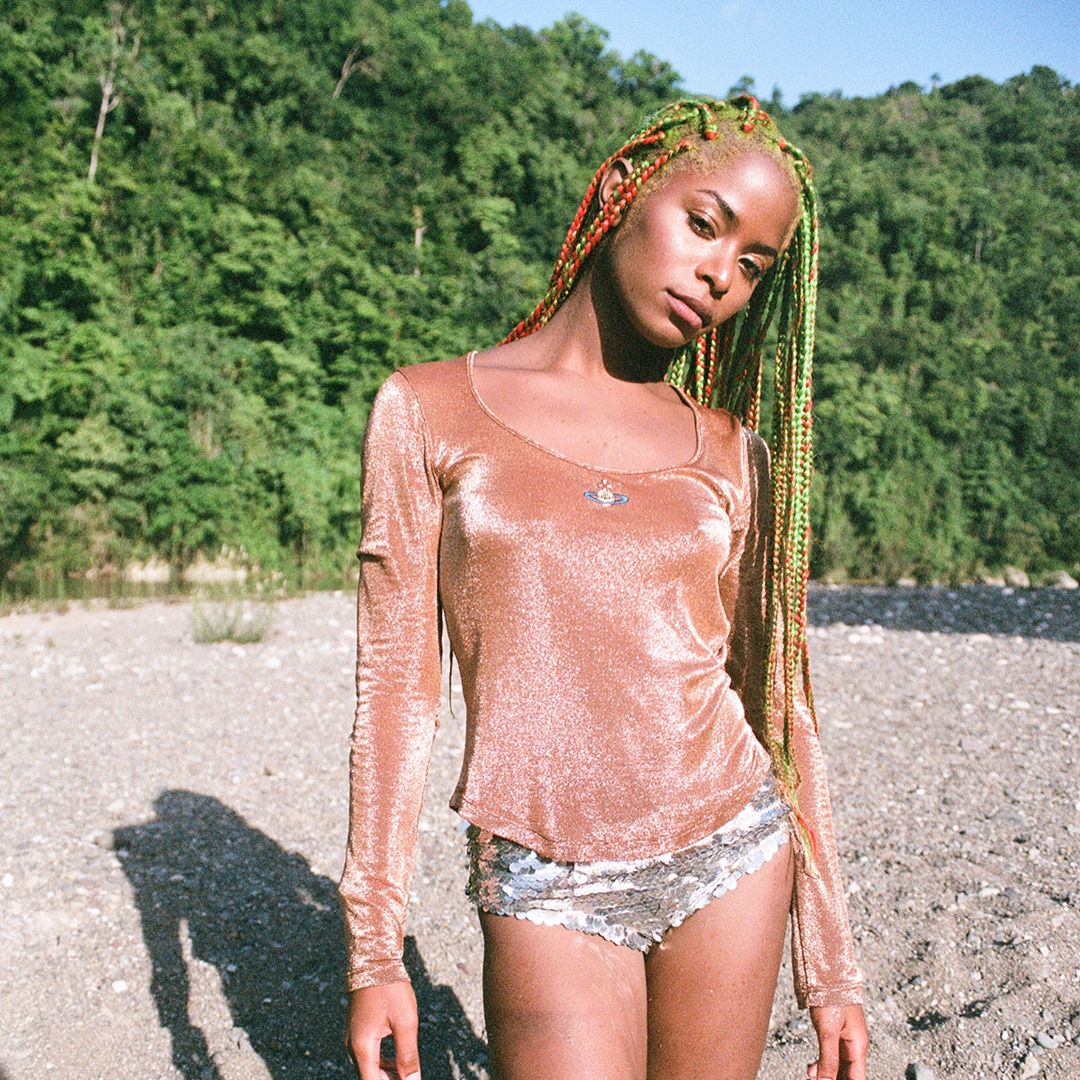
What else can you tell us about your upcoming album, Salience?
RIKI: At the time, I was young and experiencing a lot of things, so Salience is about love, art and drugs, and stuff that millennials go through at around 19 – that depressed stage or just being an artist, and trying to figure out how we can make it work because we were told to really do one thing (but want to do another). I feel like a lot of kids are like, yo, this is what I want to do – whereas back in the day, our parents didn’t really have to guts to really do that. So it kind of touches on all those basics of drugs and weed and stoner depressions… just relationships and parents and everything like that, just problems. The next track that’s gonna come out is “Lifted,” which is about marijuana, but it’s not really about weed. The verse talks about trials and tribulations, and how weed can help a situation.
Do you think you faced pressure from others to pursue a specific career?
RIKI: Well I went to community college and I was going to transfer and pursue psychology, but literally in the first year I wrote my first song, and I just stopped going to school. And it’s not even that (the older generation) didn’t have the guts to do what they want, but today, with the internet, it’s so easy to write something and become famous. But back then, it wasn’t that easy; you had to have the money to travel, and you had to deal with jobs and the minimum wage and stuff.
What was inspiring you as you were recording?
RIKI: It was not only the experiences and people, but the passion – I really loved doing music, because initially, I just did art on the level of, “this is what I do, this is a part of my life.”
We want to know what’s in your music library – what have you been listening to?
RIKI: Today you’re gonna see 2 Chainz, Travis Scott and some afrobeats – I’ve been listening to afrobeats a lot lately. And also Stefflon Don, and H.E.R., Raury, Sade, and a guy named YC and Wizkid. It’s like afrobeats mixed with trap mixed with some R&B.
What’s one song that people would be surprised to know you enjoy?
RIKI: Oh my god, for the last couple of days I’ve been listening to Juvenile’s “Back Dat Azz Up” – I had just found it again the other day and I just kept playing it.
That song is so old! Now I’m gonna feel temtped to play it after this interview.
RIKI: You’re gonna appreciate it more now! I even watched the video that had like string instruments in the beginning, and I was like oh, this is art!
What else would you like your current and future supporters?
RIKI: Yeah, I just want to get across that I’m an artist, a creative, not just somebody with a “look” – that’s not me. I’m constantly evolving into my art, and I’m an artist more than just a singer. For me, it’s about the art and the messages that I’m trying to get across with my music.
— — — —
